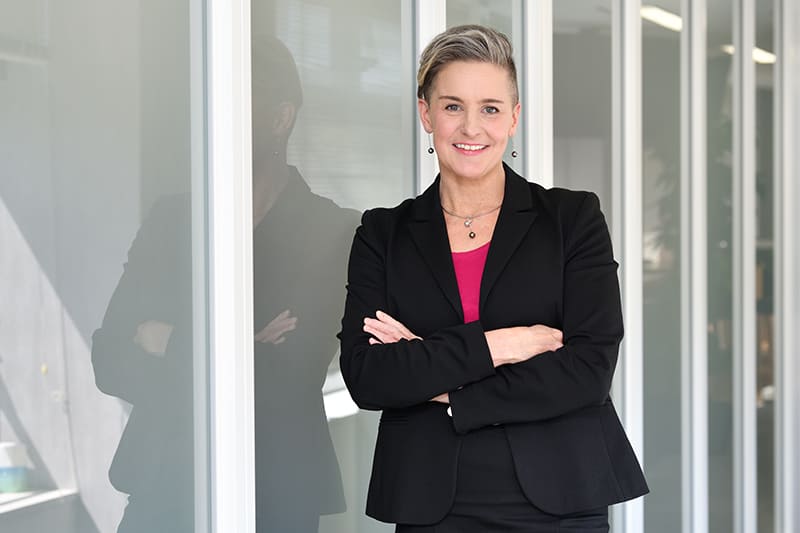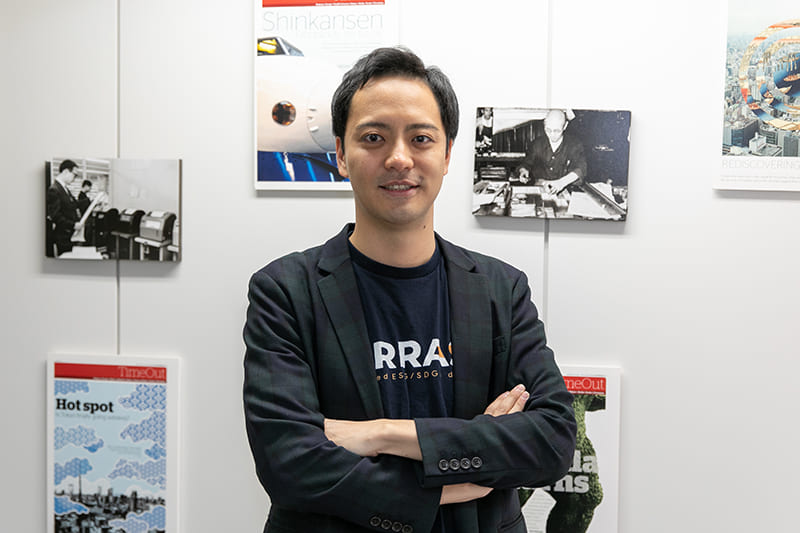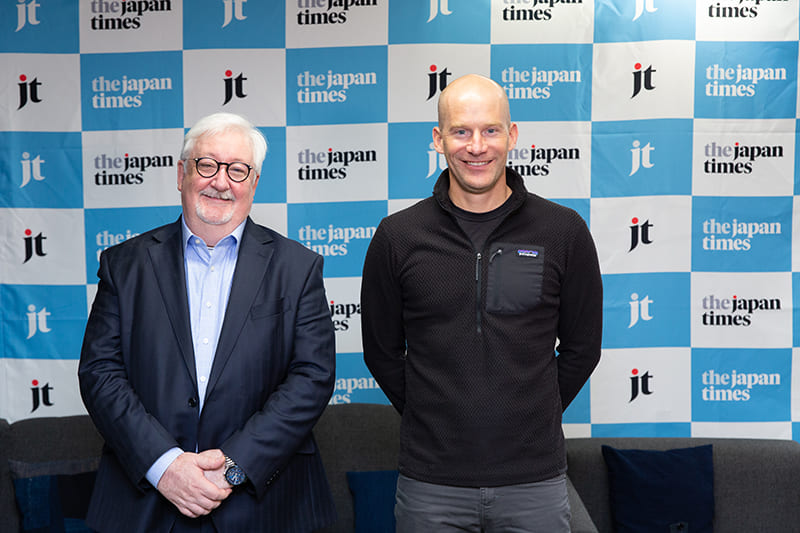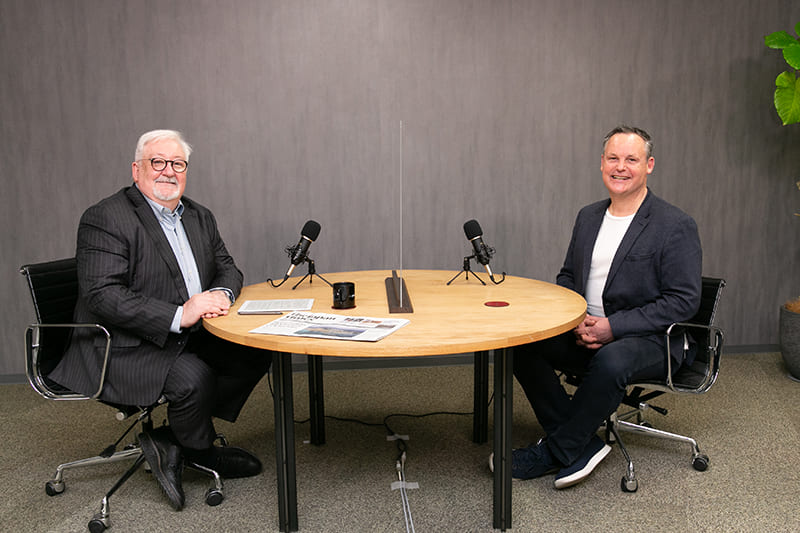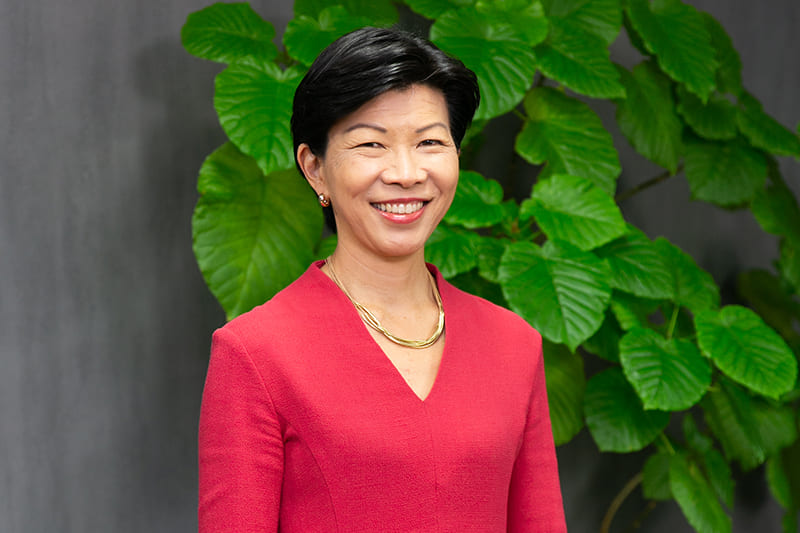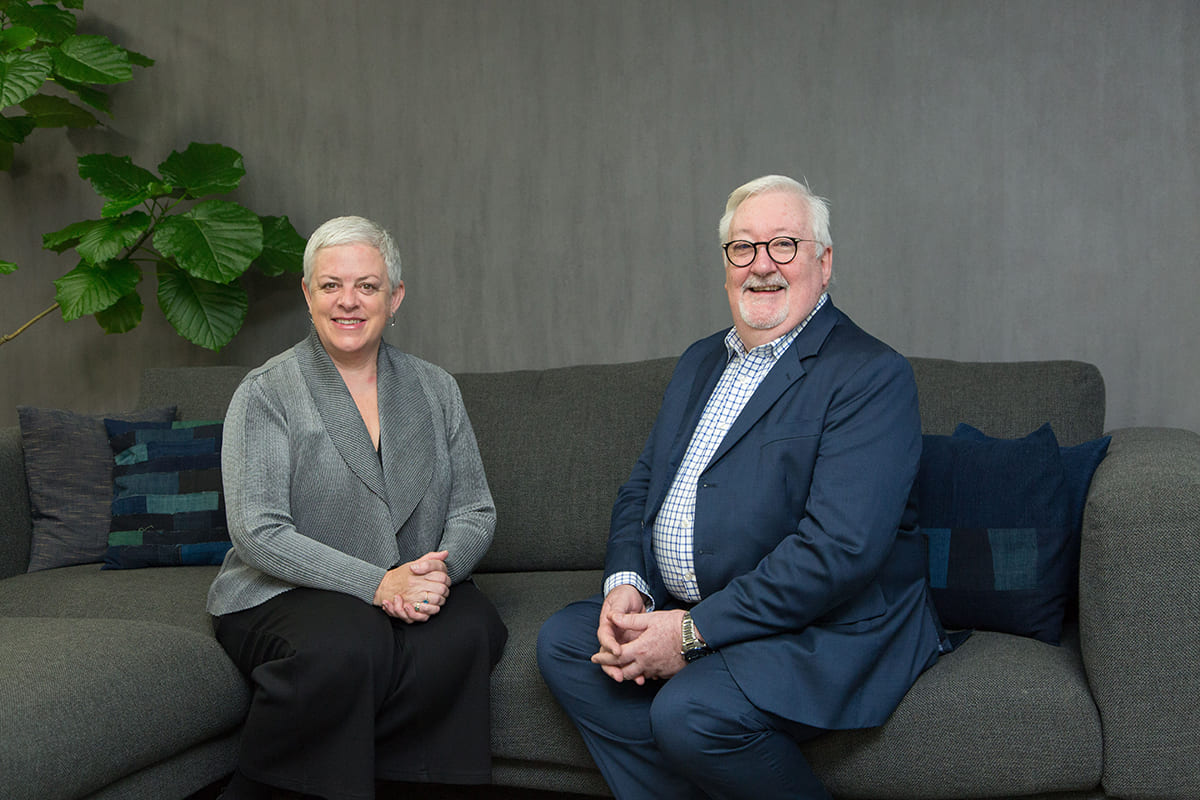June 24, 2022
Entrepreneur Kaori Sasaki makes diversity a science
Contributing writer
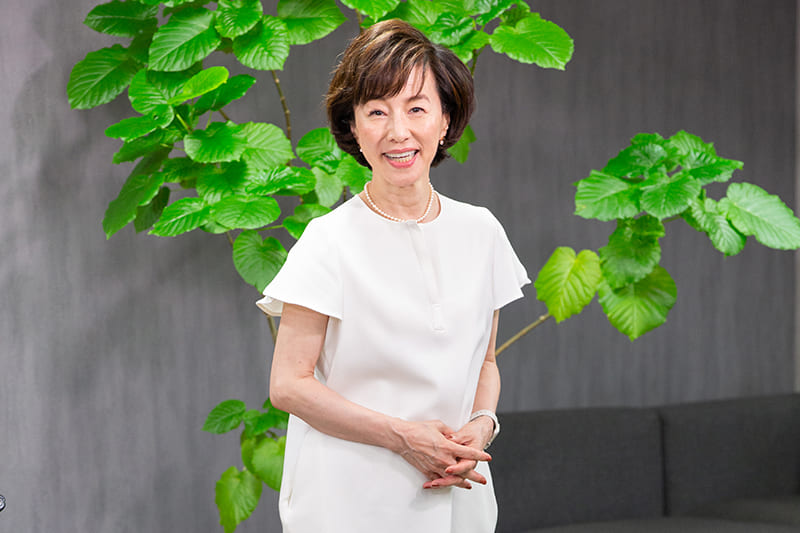
While today’s companies fight for the innovative edge out in the marketplace, they also increasingly tout their commitment to diversity back in the workplace, often in the form of a noble gesture, yet sometimes leave the impression that the two aspirations are somehow mutually exclusive. For Kaori Sasaki, founder and CEO of Ewoman Inc., Unicul International Inc. and the International Conference for Women in Business (Japan), the two aspirations are actually very much mutually accordant, with both elements essential for fostering innovation and improving governance.
After many years as CEO of Ewoman and utilizing its unique Diversity Index, Sasaki sees the value in increasing diversity now more than ever. Despite Japan ranking 120th out of 136 countries surveyed on gender equality, Sasaki is very confident about the future. “In Japan, hiring more women and giving more women opportunities in the workplace is the key to innovation,” she said. “Diversity of people means diversity of ideas.”
Sasaki took time out of her busy schedule to sit down with Ross Rowbury for the 20th iteration of Roundtable by The Japan Times to explain why diversity is important, how to effectively implement diversity, how Ewoman’s Diversity Index works, why she began the International Conference for Women in Business, and why she is hopeful about the future, among much else. Rowbury began by asking Sasaki about her early experiences in business and her motivations for creating the Women’s Business Network, a first in Japan, in 1989.
The accidental pioneer
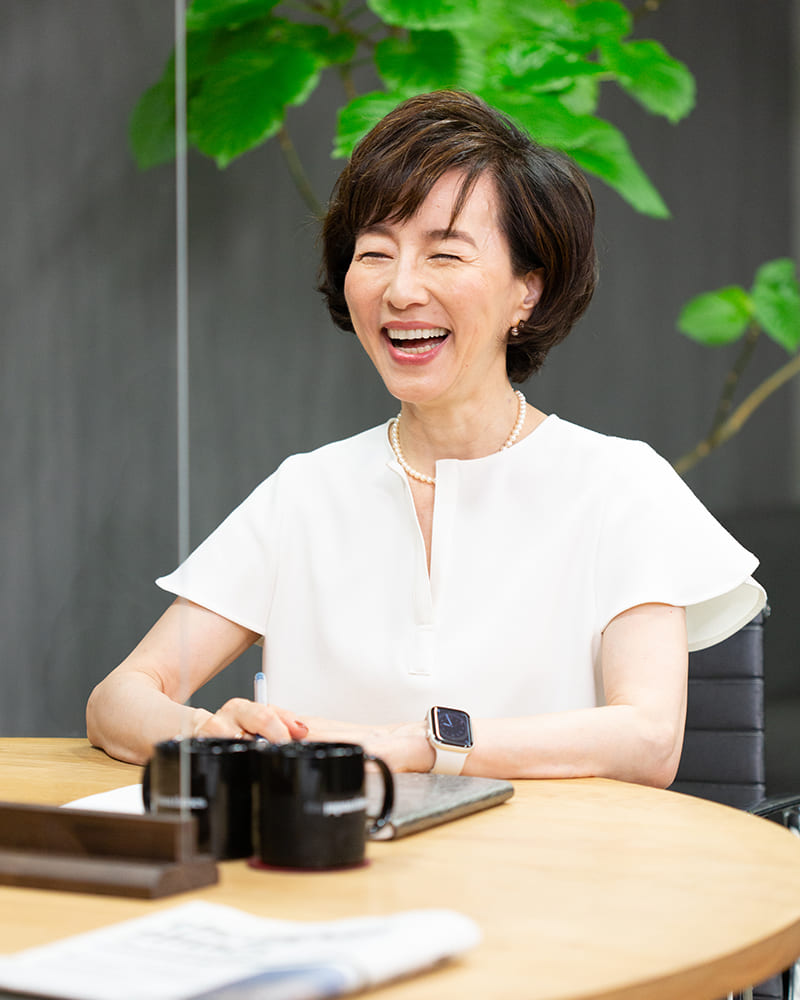
It was a very serendipitous journey for Sasaki. From finding a job handing out flyers for concert venues in high school, when she knew she had to help out by making her own money, to working freelance as an interpreter after graduating from university, to incorporating her first company, Unicul International — mainly at the behest of her paying clients — Sasaki pretty much fell into her corporate role. As Unicul International began to grow in the late 1980s, Sasaki was often approached by the media for interviews, and she soon realized that Japan lacked a network for advice and support for female entrepreneurs such as herself.
Sasaki then began researching women’s business networks in the United States and established what is now called the International Conference for Women in Business, and in the process became a pioneer in her field. “I just did what I felt was needed, and did what I thought I could contribute,” she explained. “When I see something in business or society that I think is needed, I think, ‘Well if I need it, I guess then everyone else must need it.’… And that’s the good thing about being an entrepreneur.”
Giving, ownership, action
Sasaki had certain stipulations for those who wished to join the network. For one, they must contribute in some way. But to Japanese people, the concept of contributing or giving had philosophical or religious connotations, so they often asked what giving in a business context would mean for them.
For Sasaki, this kind of giving is to bring any experience you have, to turn up and ask questions every time, to have a sense of ownership over what you do. Making those connections is what brings about action, because without action nothing changes. In Sasaki’s world view, in order to help a company, organization or even family to change, “you have to give, and you have to be the change-maker — any speciality is OK, but you have to be aware that you are giving something.” It is the agency over your own actions that animates change.
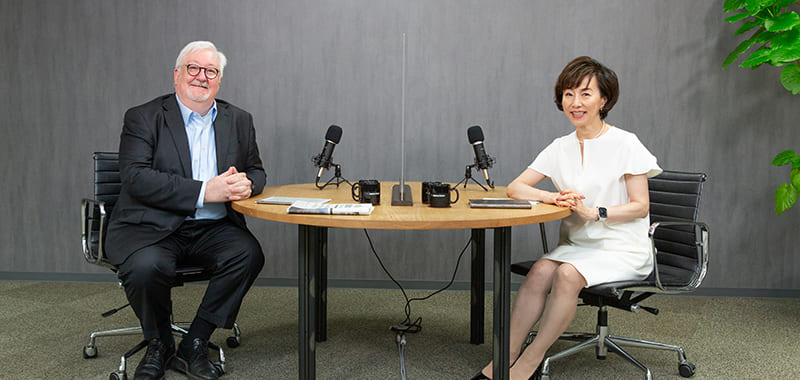
The Diversity Index
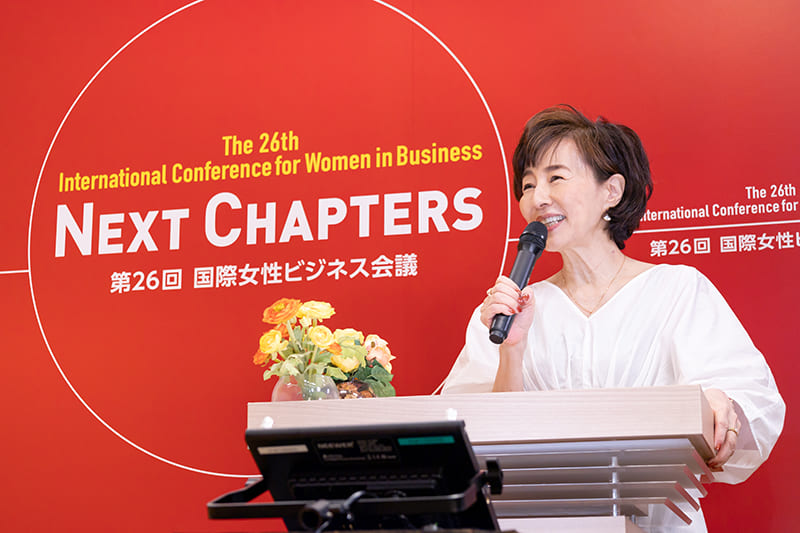
For every organization, the variety of thought that diversity brings is important, but just as critical is ensuring that the diversity is actually used. To ensure this outcome, Ewoman uses the Diversity Index, which facilitates four stages of diversity utilization.
The first stage is to recognize people within the organization. Next is the “equity stage,” which ensures that every member is significantly active and fairly evaluated. The third stage is inclusion, ensuring that everyone is listened to and evaluated fairly. The final stage is governance and innovation, where ideas are implemented. This process is termed “diversity management,” a horizontal strategy to unite a diverse team with a common goal, as opposed to the traditional vertical management strategy of top-down goal implementation. It is also important that diversity is represented across every section of the company. Companies can boast, for example, of having 40% female employees, but if those employees are not in decision-making roles or lack voting rights on the board, then nothing changes. The Diversity Index is the only system that performs such a comprehensive check. Sasaki said it is “like an annual health checkup.”
Rowbury asked about the diversity of life experiences that new recruits can bring to a company. Sasaki joked that she would like to be brought back for another episode to discuss this point, but also discussed the positive benefits of some recent changes to Japan’s corporate governance code, including a new stipulation that compels companies to take an internal audit of the talent skills of every employee. This creates a talent matrix to assess an employee’s skills rather than just the typical matrix of age, university and time served at the company. Sasaki agreed that many companies are now operating completely differently from the way they operated just 10 years ago, and that with employees’ talents increasingly now being recognized, there is every reason to believe that companies will make more use of their employee’s diverse talents in the future.
What’s next?

Sasaki says she now wants to gather more data and expand the use of the Diversity Index internationally to help companies and employees around the world. She also plans on shifting the International Conference for Women in Business online so there are no boundaries and women and men from all backgrounds can have the experience of tuning in and experiencing diversity together.
After working for so many decades, taking a step back and enjoying life is also a priority, as well as hopefully being an inspiration to other women who are starting out in their careers, as a businesswoman who enjoys life and can still be passionate about what she does.
As for the future of the International Conference for Women in Business, “In 10 years it should be over — we shouldn’t have the need for the word ‘women’ in the title.”

